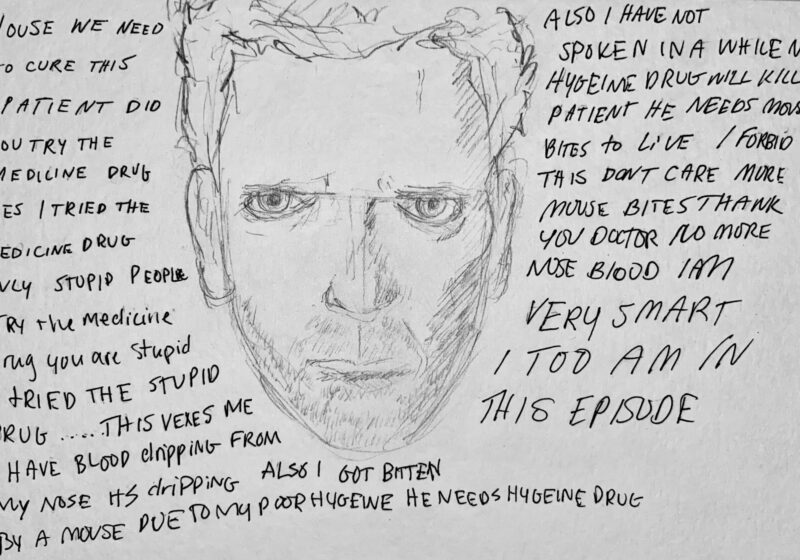For Take Five student Syed Reefat Aziz, who goes by Reefat, debate is not just the sport he plays—it’s the medium through which he’s embraced the world.
It is the tool he has used to affect change throughout the world, both here in Rochester and in his home country of Bangladesh.
Despite English being his second language and his admitted unfamiliarity with American subjects of debate, Reefat has defeated countless opponents and led Rochester’s Debate Union team to numerous successes.
Reefat’s story began in Dhaka, Bangladesh, where he grew up with his family.
“In Bangladesh,” Reefat explained, “there are a number of different school systems,” including a national school system, which teaches education in line with the UN’s “Education for All” standards
“Since I went to a national schools, I learned English in kindergarten,” Reefat said.
It was also in these national schools where he found his love for debate.
“I first discovered debate in the 7th grade, and have been doing it ever since.”
Growing up, Reefat dreamed of studying in America, though he admitted that “as kids in Bangladesh, the only American schools we’d ever heard of were Harvard and MIT.”
But as he neared graduation, he attended an admissions event hosted by the University. It was there that Reefat met Dean of Admissions Jonathan Burdick and learned about UR’s open curriculum, a major factor attracting him to the school.
Eventually, despite his parents’ initial reluctance to send him l so far from home, they agreed, he applied, and soon he was on his way to Rochester.
Reefat described his first coming to America as a “culture shock,” but he soon embraced and joined what he called the ”vibrant international student community” at UR. He also credited his assimilation to graduate students from Bangladesh, who helped him learn how to bridge American and Bangladeshi culture.
For Reefat, the largest cultural adjustment he found was in debate.
Though he had debated in Bangladesh before, American debate was an entirely new struggle.
“I think in Bengali,” he said, “and so when I debated, I had to translate to and from Bengali to English.”
He noted as well that American debate is quite different from international debate, in that it focuses heavily on American issues.
“I had to learn U.S. culture to be able to compete in these debates,” he said.
The adjustment for him didn’t take long, though. As he studied in Rochester, Reefat grew as a debater. Eventually, he became president of the team. Though the team is more focused on competition, Reefat took time to expand the club’s campus programming. He worked with others to grow their “Public Debate” program, collaborating with other clubs on campus to host public debate on pertinent topics.
Now in his fifth year, having completed his Biomedical Engineering major and his Legal Studies minor, debate and American culture are second nature to Reefat.
In fact, Reefat has turned the table, using his Key Scholar project and his mastery of debate to help both his new community of Rochester and his home back in Bangladesh.
The first part of his Key project is a collaboration with East High, the local Rochester high school that the University has collaborated with, where he has started a debate program.
“Debate teaches such important skills, but it is often seen as a rich, suburban thing,” he said.
Before graduation, he hopes to introduce a permanent debate class at East High, and is currently teaching local teachers to assume his role once he leaves.
For the second part of his Take Five, Reefat is working with a Madrassa (religious) school back in Bangladesh to leverage debate in ways that can help empower female students, through a program he first developed in high school called Leaping Boundaries.
As he explained, the Madrassas are “outdated and out of touch with the international world,” explaining that they “won’t teach some modern concepts,” and also suffer from a shortage of teachers.
To this end, Reefat and others have begun a program where they trade teaching labor to the Madrassa in exchange for the Madrassa allowing them to teach the UN educational system. In this iteration, they supplement the Leaping Boundaries program with debate, sending teaching videos to students in Bangladesh on best debate practices, and reviewing videos of their students’ debate performances. “We taught students of all genders, and we teach the curriculum that will actually help them get the jobs. It helps these students learn how to present themselves, and learn how to speak good English. For the female students, it helps them grow and break free of the cycle of dependency.”
With his fifth year coming to a close, Reefat is not sure what comes next. He is considering expanding the business he began, where he and others developed a more efficient procedure for neurological surgeons to treat “nerve block.” He may also stay in Rochester to expand the projects he’s started.
Regardless, he looks back fondly at his time in here. He admitted there were some things he would have done differently, including applying more critical thinking to his career choice early on and being more honest with himself about how much work he could handle.
Nevertheless, he wants students to remember: that, “This is literally going to be the best years of your life. Make it yours.”




